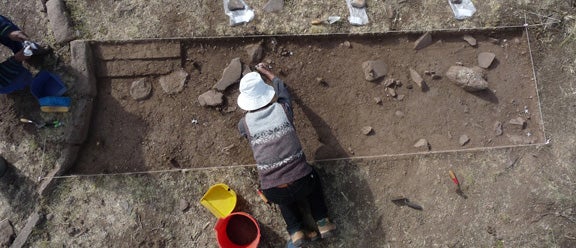
It is challenging to communicate what you know, effectively, to audiences that don’t share your frame of reference, background knowledge, and experience and priorities. Anticipating and addressing the concerns and questions of different audiences is also challenging.
Some researchers struggle to explain specialized abstract concepts and complicated processes. Some are challenged to explain why their work matters. Some need to explain why their chosen theoretical framework is no more a source of illicit bias than is the choice of a scientific hypothesis and method of data analysis.
Some researchers first need to explain what research is, and that research is real work. (Musicologists don’t just listen to music any more than astronomers just gaze at the stars.) Only then they can proceed to explain their research findings.
Communicating about research to people outside a specific field or outside academia requires commitment, resources and practice. The RESI has gathered resources to aid that communication.
Why does ethical research require effective communication?
Researchers know that publication of results is necessary to enable their replication. Scholarly publication allows others to build on or respond to what has been proffered. Sharing the fruits of research with others is necessary to realize the social value of the research.
Communicating about research to non-academic audiences is necessary to maintain public support. Helping the public understand the process of research and the demands of scholarship creates a more receptive environment for research results and helps people be more understanding of the limitations of studies and more patient while waiting for research to benefit them.
Communicating about research is necessary to maintain trust in the research process and its outcomes. People may be rightfully skeptical of what emerges from behind closed doors or from processes that are not transparent. Moreover, as eventual end users of the ideas, discoveries, and technologies emerging from research, people may have insights that can shape research questions and processes. Discussing their research with the public enables researchers to gain these insights and develop an audience that may be more receptive to their research products.
Why does communicating about research raise ethical issues?
Effective, accurate communication of research results requires multiple ethical decisions. Researchers must decide when, how and to whom research findings should be communicated. These choices require consideration of a range of responsibilities, as well as the risks and potential benefits of sharing emerging insights or outcomes. Sometimes, communication must occur despite uncertainty about the research products themselves or about how publics might receive or use them. A further challenge involves the ethical representation of others in research, including research participants and their communities, the people and populations the research is “about,” and fictional characters and communities that reflect or represent real people.
The consultants of the Research Ethics Consultation Service may help scholars and researchers address these challenges. Resources listed in this section may help as well.
For institutional communications support, visit Pitt Media Relations.
Guidance for Research Communication
- Advancing the Science and Practice of Science Communication: Misinformation About Science in the Public Sphere (Video Series)
- Authorship Agreement Form
- Ethics in Statistical Practice: Five Recommendations
- Explaining Nonempirical, Normative, and Conceptual Research
- Poster Presentations @ Pitt: Getting Started
- Scholarly Communication
- Social Media Playbook
- The Science of Scientific Writing
Research Communication Opportunities
